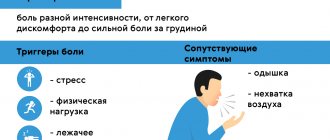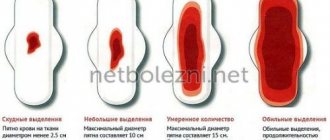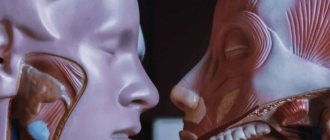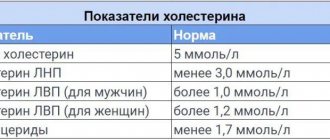Pregnancy brings many changes to the functioning of a woman's organs, and the heart is no exception. In most cases, the pain that occurs in it is not dangerous and is associated precisely with the restructuring of the body caused by an increase in the weight of the uterus and placenta, increased nervous and emotional excitability of the expectant mother, changes in blood circulation and oxygen starvation of the myocardium. Only sometimes pain in the heart signals possible pathologies that the woman did not know about before pregnancy.
In our article we will talk about cases that may be a reason to contact a cardiologist, and those situations when heart pain is only a temporary and self-limiting phenomenon. This knowledge will help you suspect pathology if it is already present, and will reassure you if an episode of harmless pain worries you.
The nature of heart pain during pregnancy
Pain in the heart area during pregnancy serves as the basis for a comprehensive examination of the woman and consultation with a cardiologist.
Heart pain during pregnancy can have different origins and, therefore, vary in nature.
Anginal pain
Such pain is caused by an increased load on the heart, which is provoked by physiological changes in the body of a pregnant woman, mental or physical stress. They are caused by myocardial ischemia (insufficient blood supply to all structures of the heart).
Angious pains are of the following nature:
- pressing;
- burning;
- contracting;
- radiating to the left shoulder blade, shoulder or chin.
If all these signs of pain are intense, then its appearance may indicate myocardial infarction. This serious condition is extremely rarely observed in pregnant women.
Cardialgia
Such pain is caused by vegetative-vascular dystonia, defects and inflammatory diseases of the heart. They can occur at any time, but are more often triggered by increased workload on the heart.
Cardialgia is of the following nature:
- long-term;
- piercing;
- aching;
- spilled;
- localized to the left of the sternum;
- worse when breathing, sneezing or coughing.
If such pain occurs, a pregnant woman should consult a cardiologist as soon as possible and be sure to notify the obstetrician-gynecologist observing her about their occurrence.
What examinations need to be completed
Each expectant mother is registered with the antenatal clinic for observation and periodic examinations. It is advisable to do this during the first trimester (up to 12 weeks). Women who have heart pain during pregnancy are at risk and require closer monitoring.
If attacks worsen or become more frequent, it is recommended to seek advice from a therapist or cardiologist. It may be necessary to conduct a number of laboratory and instrumental studies:
- electrocardiography;
- echocardiography (ultrasound of the heart);
- general blood analysis;
- clinical urine analysis;
- blood chemistry;
- hormonal indicators;
- genetic tests.
These procedures are informative and safe for the woman and fetus.
When is pain in the heart area not dangerous for a pregnant woman?
Pain in the heart area may not be associated with cardiac pathology. The doctor will determine this during the examination.
Heart pain arising due to physiological changes in the body of a pregnant woman
The causes of physiological and non-threatening pain in the heart during pregnancy can be the following changes in a woman’s body:
- weight gain, which forces the heart to work faster and leads to myocardial ischemia;
- the emergence of a new circle of blood circulation between the placenta and the child, which also creates additional stress on the heart muscle and increases the volume of circulating blood;
- The uterus that has grown in the second half of pregnancy begins to compress not only the abdominal organs, but also increases pressure on the diaphragm, which also constrains the work of the lungs and mediastinum.
All of these reasons above lead to an increase in the load on the heart, and it begins to contract faster. It is tachycardia that causes pain in the heart. If they occur only periodically, are not intense and quickly go away on their own, then there is no reason to worry. In such cases, the pregnant woman can simply report them to the obstetrician by telephone or during a visit to him.
In addition to internal changes in a woman’s body, pain in the heart can be provoked by some external factors leading to myocardial hypoxia. These include:
- long stay in a poorly ventilated area;
- uncomfortable posture while sleeping or working;
- high air temperature;
- fast walk;
- nervous overstrain.
These external factors also lead to myocardial ischemia, and some of them can provoke a short-term increase in blood pressure, which also causes increased load on this organ. Heart pain caused by such conditions is not a threat to the pregnant woman and the unborn baby, but a woman should try to avoid exposure to these causes and report such conditions to her doctor, who, if necessary, will prescribe additional examination.
Pain in the heart resulting from diseases of other organs
Sometimes during pregnancy, women experience pain in the heart area, which is caused by diseases of other organs:
- intercostal neuralgia - a woman experiences severe pain that disappears after a few seconds;
- osteochondrosis of the thoracic spine - a woman experiences pain of various types and can be associated with an uncomfortable posture or sudden movement;
- myositis – a woman experiences acute pain after hypothermia;
- anemia and other blood diseases - a woman experiences pain in the heart, shortness of breath, weakness, which is difficult to associate with any external factors, and with insufficient oxygen they intensify.
Such pain in the heart area is not dangerous for a woman and her unborn child, but can significantly affect the general state of health and psyche. When they appear, you need to contact a therapist who, taking into account the fact of pregnancy, will determine the diagnosis by prescribing additional research methods. After this, he will be able to refer you for a consultation with a neurologist or hematologist to draw up an effective treatment strategy for the disease.
When is pain in the heart dangerous for a pregnant woman?
Heart pain during a planned pregnancy, which can be dangerous for the gestation of the fetus and the health of the expectant mother, occurs infrequently. This is explained by the fact that when planning to conceive, women undergo a comprehensive examination, the results of which allow them to decide on the advisability of pregnancy at the moment together with a cardiologist. In such cases, in order to prepare for bearing a child, the doctor, if cardiac pathology is detected, will recommend a course of treatment, which will be aimed at preventing complications.
In cases of unplanned pregnancy, pain in the heart most often occurs with the development of gestosis (late toxicosis). This complication is accompanied by edema and increased blood pressure, which provokes headaches and pain in the heart area. Such a load on the myocardium can be life-threatening for the expectant mother and fetus. In such situations, the following symptoms may be a signal to call an ambulance:
- pain behind the sternum of a squeezing or pressing nature;
- pain radiating to the left arm, shoulder, shoulder blade or chin;
- headache;
- swelling of the lower extremities.
Another complication of pregnancy, accompanied by heart pain, can be cardiomyopathy . This disease develops unexpectedly in the third trimester or immediately after the birth of the child. The reasons for its appearance have not yet been sufficiently studied, but doctors suggest that the impetus for its appearance is a violation of the adaptive capabilities of the woman’s body or the development of autoimmune reactions.
The main symptoms of cardiomyopathy in pregnant women may include the following:
- pain in the heart area of a pressing, sharp or dull nature;
- increased heart rate;
- arrhythmia;
- swelling of the legs;
- severe weakness;
- dyspnea.
The further prognosis of cardiomyopathy during pregnancy depends on many indicators. A woman’s weight, the number of fetuses, blood pressure readings: all these parameters can determine the course of the disease and its impact on the gestation and health of the fetus.
External changes during the first days of pregnancy
Also, in addition to the symptoms indicated in the previous section of the article, which the woman notes herself, certain external changes occur that are noticeable to the people around her.
Due to hormonal changes, skin problems may appear. Many girls who have not previously suffered from acne notice that rashes begin to appear.
Swelling of the face, arms and legs also accompanies pregnancy, including in the early stages. Sometimes their severity reaches such an extent that the girl cannot walk in her usual shoes.
Breasts can increase by 1-2 sizes already in the first weeks of pregnancy. At the same time, the appearance of a venous vascular pattern and darkening of the nipple areola are noted.
The pigmentation of the midline of the abdomen, running from the navel to the pubis, also increases. This symptom is observed in most pregnant women.
A blush often appears on the skin of the face. This sign is explained by increased blood flow in the body of the expectant mother.
What are the dangers of heart pain in a mother for her unborn baby?
Heart pain can affect the health of the fetus if it is caused by diseases. Physiological pain, if the mother does not take unjustified measures to self-medicate it, does not threaten the unborn child.
Anemia, gestosis, cardiomyopathies and other heart pathologies that are not detected and treated in a timely manner can cause a deterioration in the blood supply to the fetus and placenta. This leads to malnutrition and hypoxia of the fetus, and in severe cases – to encephalopathy. Sometimes such pregnancy pathologies lead to premature birth and fetal death.
What should a pregnant woman do if she has heart pain?
The main rule when a pregnant woman experiences heart pain is not to take any medications without the advice of a doctor! Even taking Corvalol or Valocardin can harm the health of the unborn child and will only temporarily eliminate discomfort.
If pain in the heart occurs, you must:
- Calm down.
- Lie down or sit down.
- Provide fresh air flow.
- Get rid of clothing that restricts breathing and blood circulation.
- If the pain goes away within a few minutes, then after it disappears, inform your doctor about it and follow his recommendations.
- If acute myocardial ischemia is suspected, take a Validol tablet (under the tongue).
- In case of prolonged and intense pain, call an ambulance.
After the examination, the doctor will be able to prescribe treatment and recommend changes in the regimen.
Preventive measures
Is it possible to avoid heart pain? A woman’s healthy lifestyle is important for prevention:
- the diet should contain foods containing iron, magnesium, sodium, potassium, which are necessary for the functioning of the heart muscle;
- if necessary, the doctor prescribes multivitamin complexes;
- do not give up physical activity; moderate exercise will strengthen the heart muscle;
- the apartment should be ventilated frequently to avoid stuffiness;
- During pregnancy, you need to avoid stressful situations and excessive emotional stress.
If a woman has diseases of the cardiovascular system, she needs to warn doctors about this, and she will be under the supervision of a cardiologist throughout the entire period of pregnancy. Severe heart pathologies are an indication for cesarean section.









